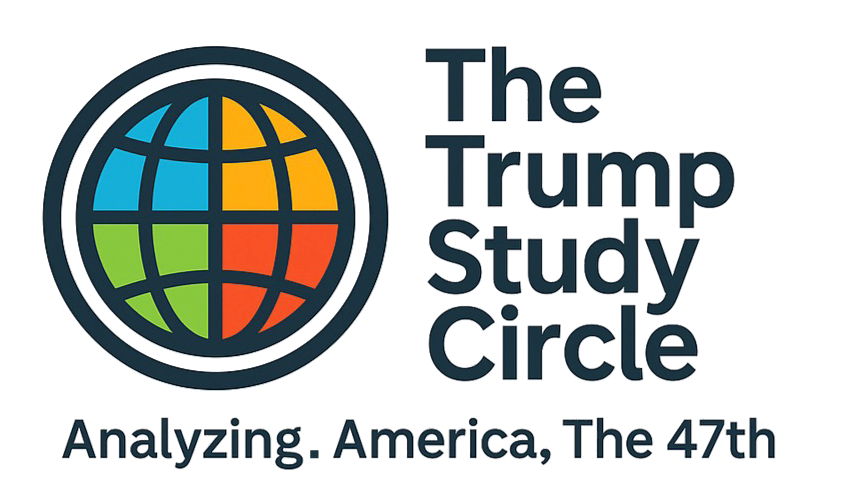The Trump Study Circle (TSC) is a new-age civic forum—globally distributed and dedicated to the study of leadership, culture, and America’s role in the 21st century. It brings together a wide spectrum of participants—students, scholars, professionals, businesspeople, civic actors, think tanks, media voices, and contributors from both urban and rural contexts—for structured dialogues that explore the culture and politics of the United States, the persona of the sitting president, and the global influence of American leadership.
Not at all. TSC is neither a fan club nor a political advocacy group. It is a civic learning initiative grounded in open, non-partisan dialogue. TSC participants examine the U.S. president—beginning with Donald J. Trump during the 2025–2029 cycle—as a case study in modern leadership, media influence, global diplomacy, and cultural transformation. The goal is to deepen understanding and raise what TSC defines as the Global Quotient (GQ) of communities around the world.
No. The TSC is not an activist platform. It focuses on analysis, dialogue, and study, not advocacy. Its mission is to raise the Global Quotient (GQ)—helping individuals and institutions critically understand and engage with U.S. leadership and its global ramifications. TSC creates space for thoughtful exploration, not mobilization or protest. Its purpose is understanding, not organizing.
No. The TSC does not promote any political ideology, support specific policies, or endorse any political party. Its mission is purely educational and civic—to build global awareness and strategic insight into the role of American leadership in shaping world affairs. While participants may include policymakers, analysts, and media professionals, the platform itself remains strictly non-partisan and focused on civic inquiry—not political influence.
The TSC is designed as a living and evolving civic forum. From 2025 to 2029, it focuses on the 47th U.S. President, Donald J. Trump. As future presidencies unfold, TSC will adapt and continue its mission—to decode the personality, politics, and policy of each successive American leader. Across time, it aims to foster critical thinking, civic engagement, and the advancement of the Global Quotient (GQ) across generations and societies.
TSC is open to everyone—regardless of age, profession, or political opinion. Whether you admire, oppose, or are simply curious about America and its leadership, you’re welcome to join the dialogues. Participants include:
TSC adds value for diverse participants:
TSC is decentralized and open-format. Local circles operate independently—in-person or on Zoom, virtually—based on interest, geography, and context. The TSC Secretariat provides optional support including:
Each circle adheres to shared civic values while adapting to local realities.
TSC supports a wide variety of meeting formats tailored to local audiences. Local chapter presidents have all flexibility to enable dialogues on any topic related to America or Trump, with 10-20 or more people in any format or style of their choosing.
Educational & Academic Settings
Casual & Community Formats
Professional & Strategic Dialogues
Immersive & Creative Formats
Every format aims to make civic dialogue accessible, flexible, and enriching.
Hosts and chapter presidents are the local conveners. They promote TSC values, design appropriate dialogue formats, and coordinate local gatherings throughout the year.
TSC Secretariat provides hosts and chapter presidents with:
Personal & Civic Growth
Strategic & Professional Development
Contribute meaningfully to public understanding in your community
Yes. All circles adhere to shared civic values:
You can:
Visit the website and send us simple message to receive your Starter Kit and begin your journey.

The Trump Study Circle is an independent, non-partisan initiative. It is not affiliated with or endorsed by Donald J. Trump or any of his entities. The use of the name is solely for civic and academic purposes.
designed by idaete.com